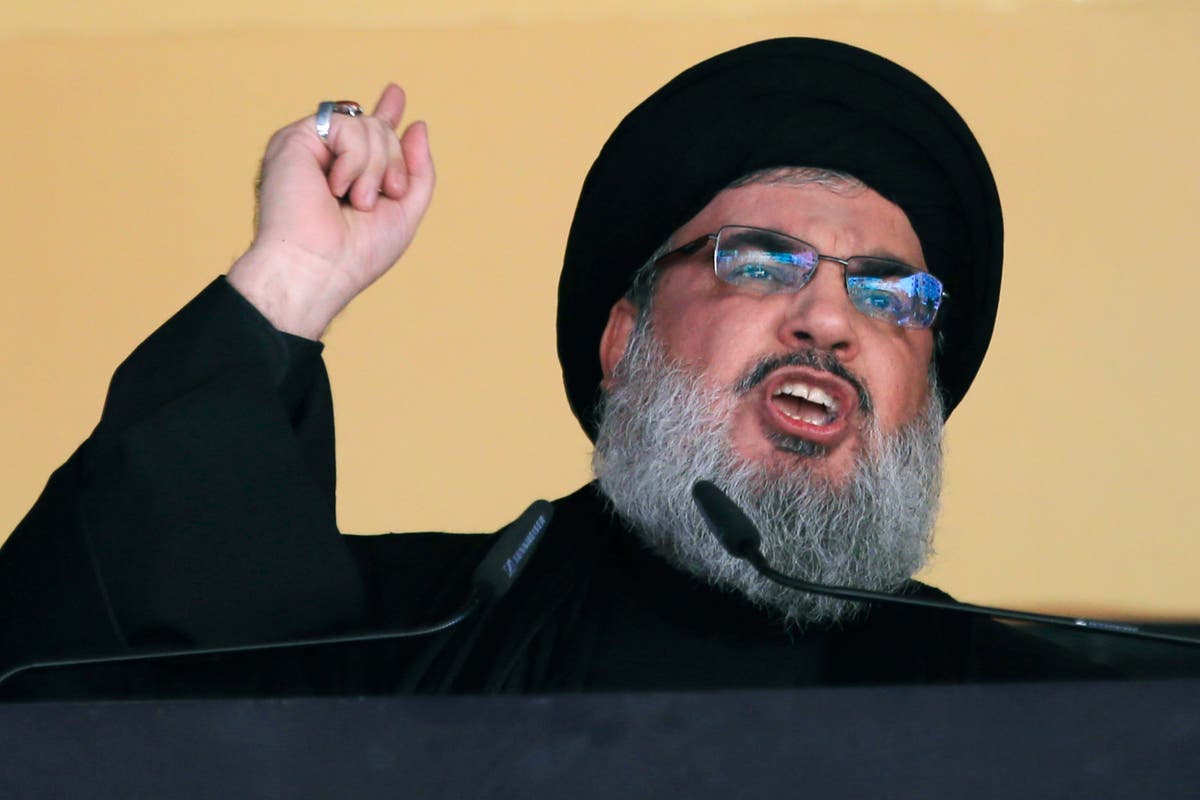Key events Show key events only Please turn on JavaScript to use this feature
Australian PM urges Netanyahu to 'listen to the international community' amid fears of escalating conflict with Hezbollah

Daniel Hurst
The Australian prime minister, Anthony Albanese, has urged his Israeli counterpart to “listen to the international community” amid fears of an escalating conflict with Hezbollah in Lebanon.
The foreign affairs minister, Penny Wong, also declared that the world “cannot allow any party to obstruct” peace in the Middle East as she pressed for an immediate ceasefire in Gaza and Lebanon.
Speaking hours after the Israeli government rejected growing international calls to agree to a three-week ceasefire with Hezbollah, Albanese had a sharp message for Benjamin Netanyahu.
“I say to prime minister Netanyahu that he needs to listen to the international community, just like the other players in that region need to listen to the international community,” he told reporters in Melbourne.
“The calls are very clear when you have the United States, Australia, the United Kingdom, Canada, other nations all calling for a de-escalation of this conflict.”
In New York, Wong addressed the UN security council and emphasised the urgent need for “de-escalation” and “dialogue”.
“Hezbollah are terrorists that have not complied with security council resolution 1701, but Lebanese civilians should not pay the price,” Wong said.
“Lebanon cannot become the next Gaza. Just as in Gaza, Australia calls for an immediate ceasefire in Lebanon.”
In a pointed message to Israel, Wong said: “War has rules – even when confronting terrorists; even when defending borders.”
Israeli and US officials meet to discuss US-backed ceasefire proposal with Hezbollah
Israeli and US officials have met to discuss a US-backed ceasefire proposal with Hezbollah, the office of prime minister Benjamin Netanyahu said late on Thursday.
The meetings – which happened in New York on the sidelines of the UN general assembly, would continue in the days ahead, Netanyahu’s office said, adding that they appreciated the US efforts.
The statement came after Israeli foreign minister Israel Katz said on Thursday there would be no ceasefire in the north, where Israeli jets have been carrying out the heaviest bombardment against the Iranian-backed Hezbollah movement in decades.
On Thursday, after Netanyahu left for New York where he is attending the UN general assembly, his office issued a statement saying the prime minister had ordered Israeli troops to continue fighting with full force in Lebanon.
More on that in a moment, but first here is a summary of the day’s other main events:
-
Benjamin Netanyahu has said Israel “will not stop” its attacks on Hezbollah in Lebanon despite calls from the US, France and other allies for an immediate three-week ceasefire. The Israeli prime minister told reporters that his government’s policy was clear as he landed in New York on Thursday. “We are continuing to strike Hezbollah with full force, and we will not stop until we reach all our goals,” Netanyahu said.
-
The US and France called for a 21-day temporary ceasefire between Israel and Hezbollah to make way for broader negotiations. A joint statement calling for “a diplomatic settlement” of the crisis was also endorsed by the UK, Australia, Canada, the European Union, Germany, Italy, Japan, Saudi Arabia, the United Arab Emirates and Qatar. It called for an urgent cessation of hostilities, which presented “an unacceptable risk of a broader regional escalation”.
-
Lebanon’s minister for foreign affairs, Abdallah Bouhabib, has said his country is enduring a crisis that “threatens its very existence”. Speaking at the UN general assembly, he has said that his government welcomed yesterday’s ceasefire plan raised by the US and France – and demanded it be implemented.
-
US officials hope to persuade Netanyahu to accept the ceasefire proposal by the time he addresses the UN general assembly on Friday. They argue that a pause in the fighting between Israel and Hezbollah could also provide a breathing space in which to revive long-stalled negotiations with Israel and Hamas over the release of Israeli hostages in return for a truce in Gaza. Hezbollah has yet to respond to the call for a truce, although it and its backer, Iran, have previously insisted it would halt its strikes only if there is a ceasefire in Gaza.
-
Israeli airstrikes continued in Lebanon on Thursday, in which health authorities said 92 people had been killed. Two people were killed and 15 others injured, including a woman in critical condition, after an Israeli airstrike in Beirut on Thursday, according to Lebanon’s health ministry. Israel said it carried out a strike that it said killed one of the heads of the Hezbollah air force unit, Mohammad Surur. Hezbollah later confirmed his death.
-
Yemen’s Iran-backed Houthi movement said it had targeted the northern Israeli town of Safed with dozens of rockets on Thursday in response to Israeli attacks on Lebanon. Later on Thursday, air raid sirens sounded in Tel Aviv and across central Israel. The IDF said the sirens were triggered by a missile fired from Yemen, which it said was intercepted by Israel’s Arrow missile defence system.

 By The Guardian (World News) | Created at 2024-09-27 06:45:09 | Updated at 2024-09-30 11:31:34
3 days ago
By The Guardian (World News) | Created at 2024-09-27 06:45:09 | Updated at 2024-09-30 11:31:34
3 days ago



